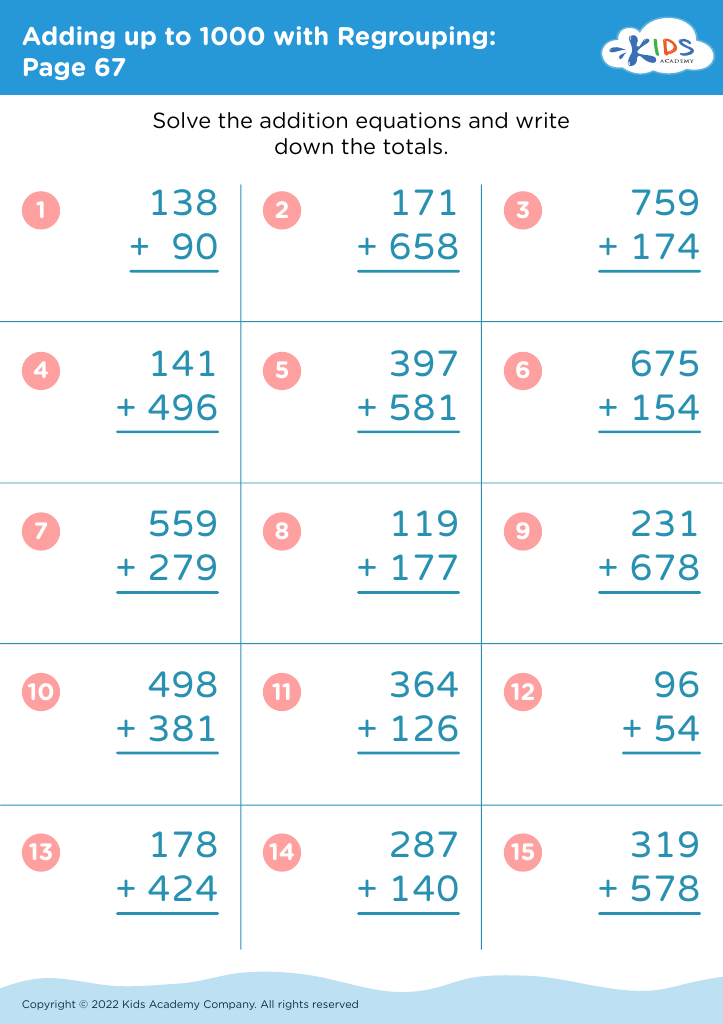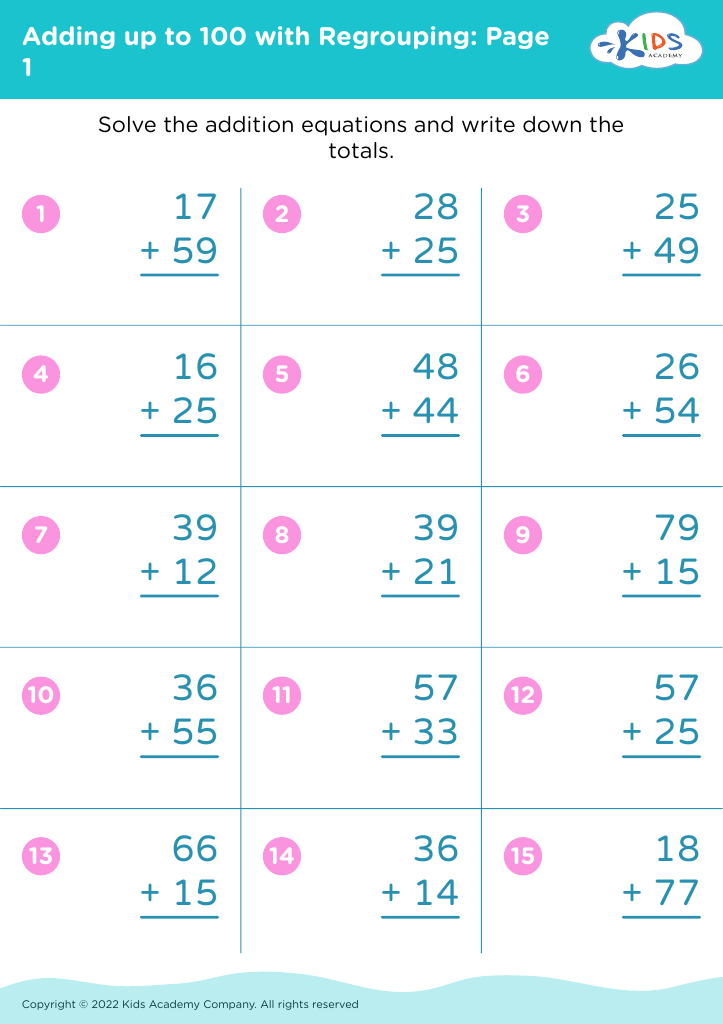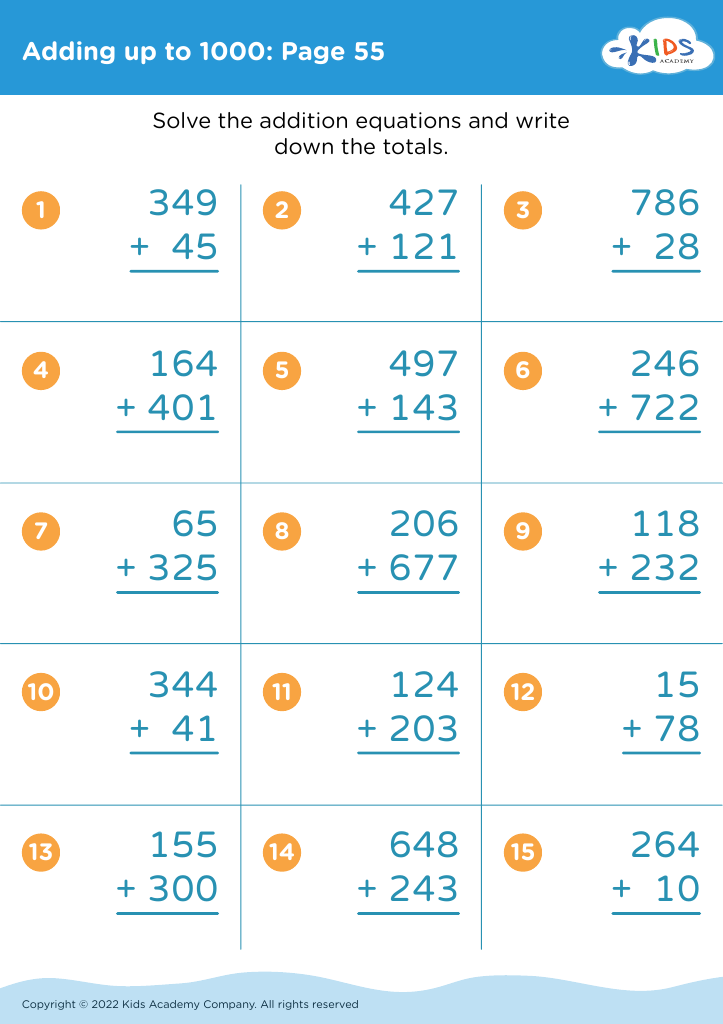Logical thinking development Addition & Subtraction Worksheets for 7-Year-Olds
9 filtered results
-
From - To
Enhance your 7-year-old’s logical thinking skills with our engaging Addition and Subtraction Worksheets! Designed specifically for young learners, these worksheets encourage critical thinking and problem-solving while reinforcing essential math concepts. Featuring a variety of fun exercises, children will practice basic arithmetic through puzzles, matching problems, and more. As they navigate through the activities, kids will develop their reasoning abilities and gain confidence in their math skills. Perfect for classroom use or at-home learning, our worksheets provide a comprehensive and enjoyable way to strengthen math foundations. Empower your child’s logical thinking and mastery of addition and subtraction today!
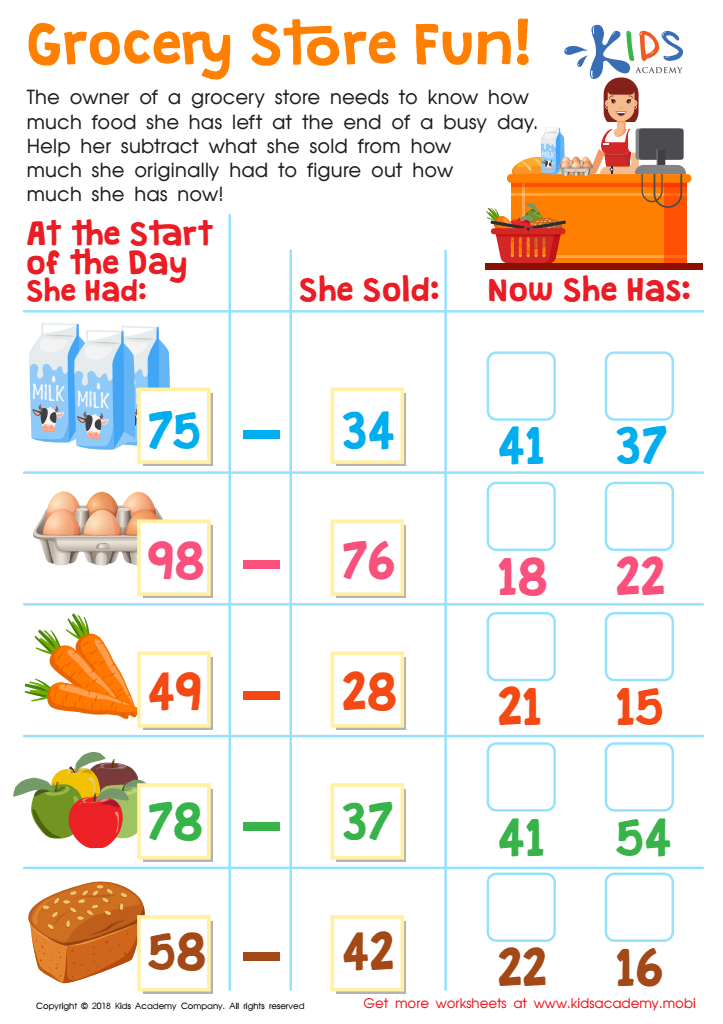

Grocery Store Fun! Worksheet


Tricky Problems Worksheet: Part 2
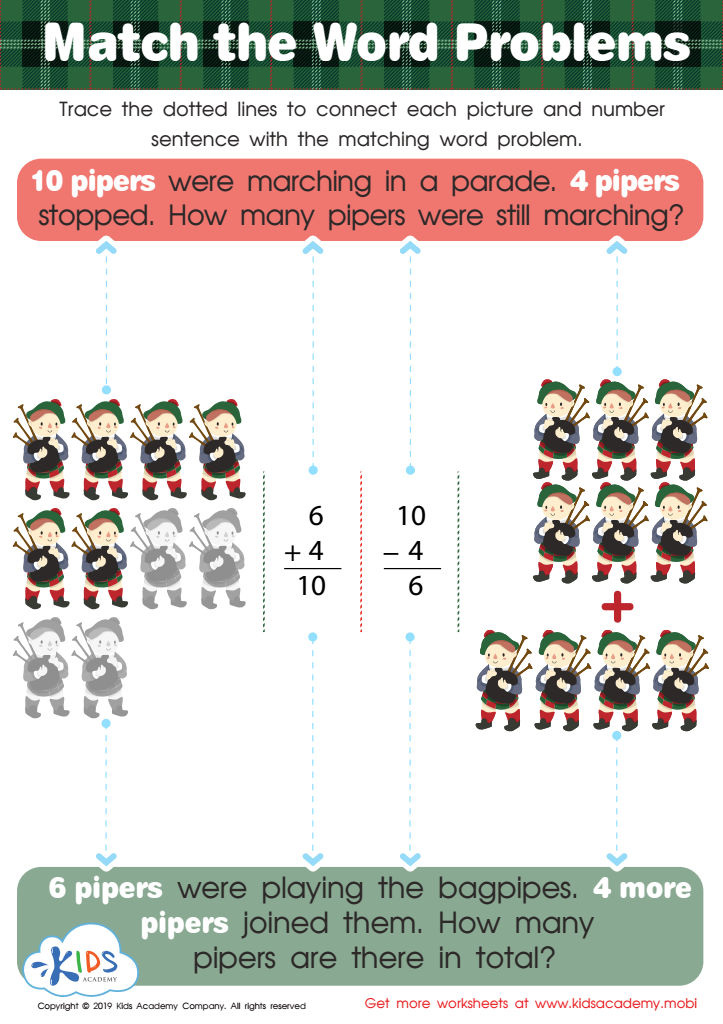

Match the Word Problems Worksheet
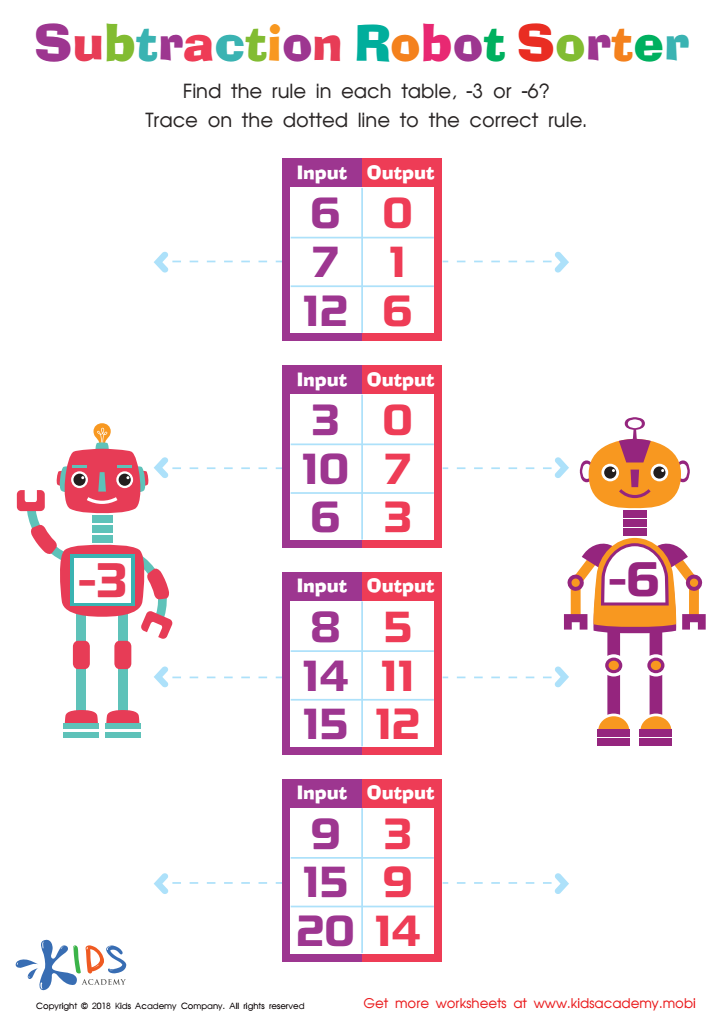

Subtraction Robot Sorter Worksheet
Parents and teachers should prioritize the development of logical thinking alongside addition and subtraction for 7-year-olds because it lays the foundation for critical problem-solving skills essential in everyday life. Logical thinking enables children to analyze situations, recognize patterns, and make informed decisions. As they engage with addition and subtraction, children learn to think systematically about numbers and quantities, which enhances their cognitive abilities.
Moreover, mastering these math concepts boosts children's confidence and motivation in their learning journey. Understanding how to manipulate numbers helps them tackle more complex mathematical concepts in the future, such as multiplication and division. This cumulative knowledge fortifies their math skills, making them more adept at approaching challenges across disciplines.
Additionally, logical thinking fosters creativity and innovation. Through engaging activities that require reasoning, children learn to approach problems from various angles, fostering their ability to think outside the box. By developing strong logical reasoning skills now, parents and educators equip children with the tools they need to navigate academic requirements and real-world situations effectively. Overall, nurturing logical thinking in conjunction with basic arithmetic empowers children to succeed both in school and beyond.
 Assign to My Students
Assign to My Students

